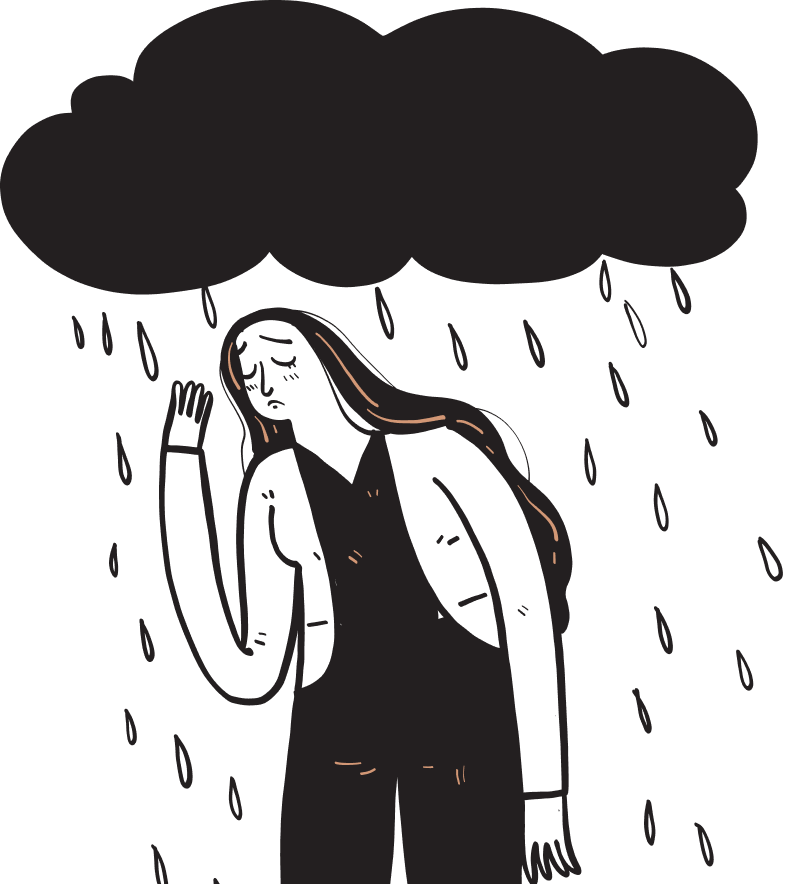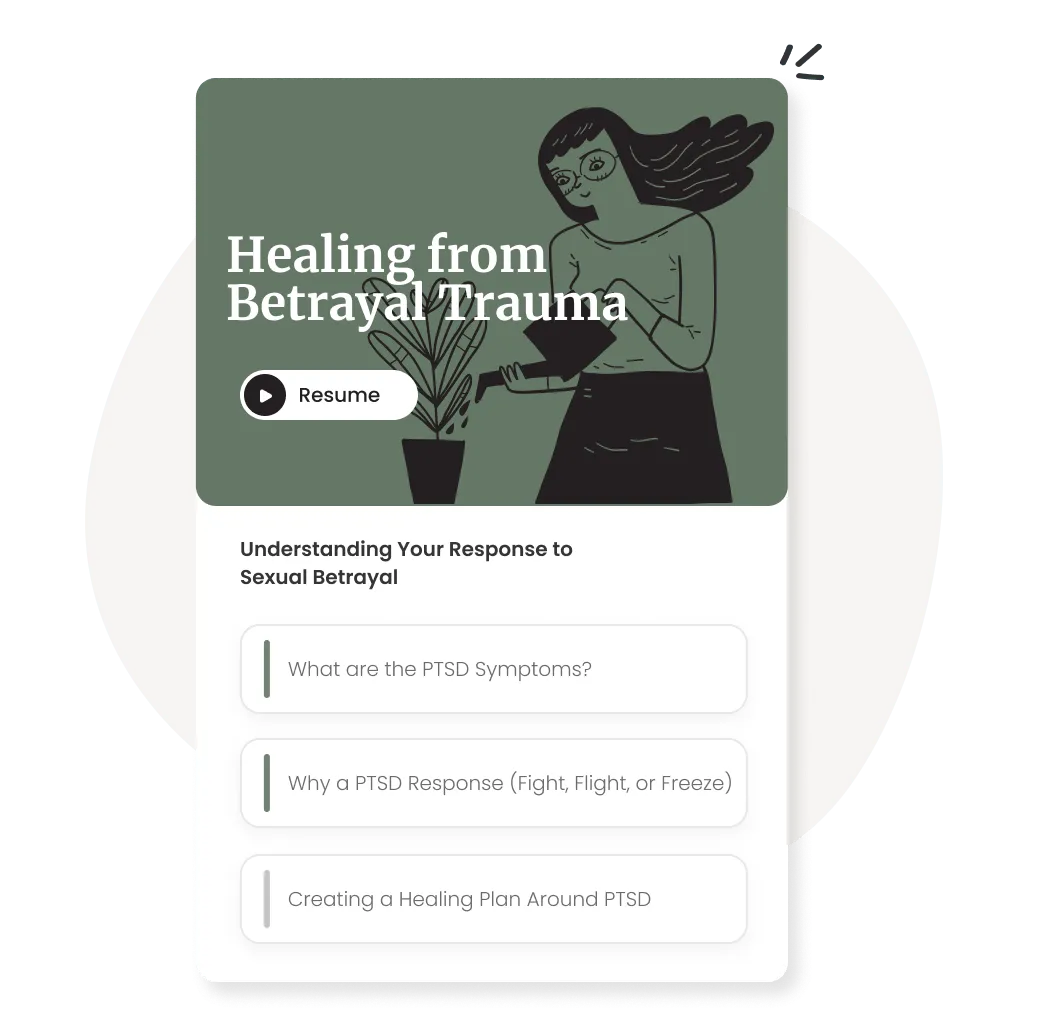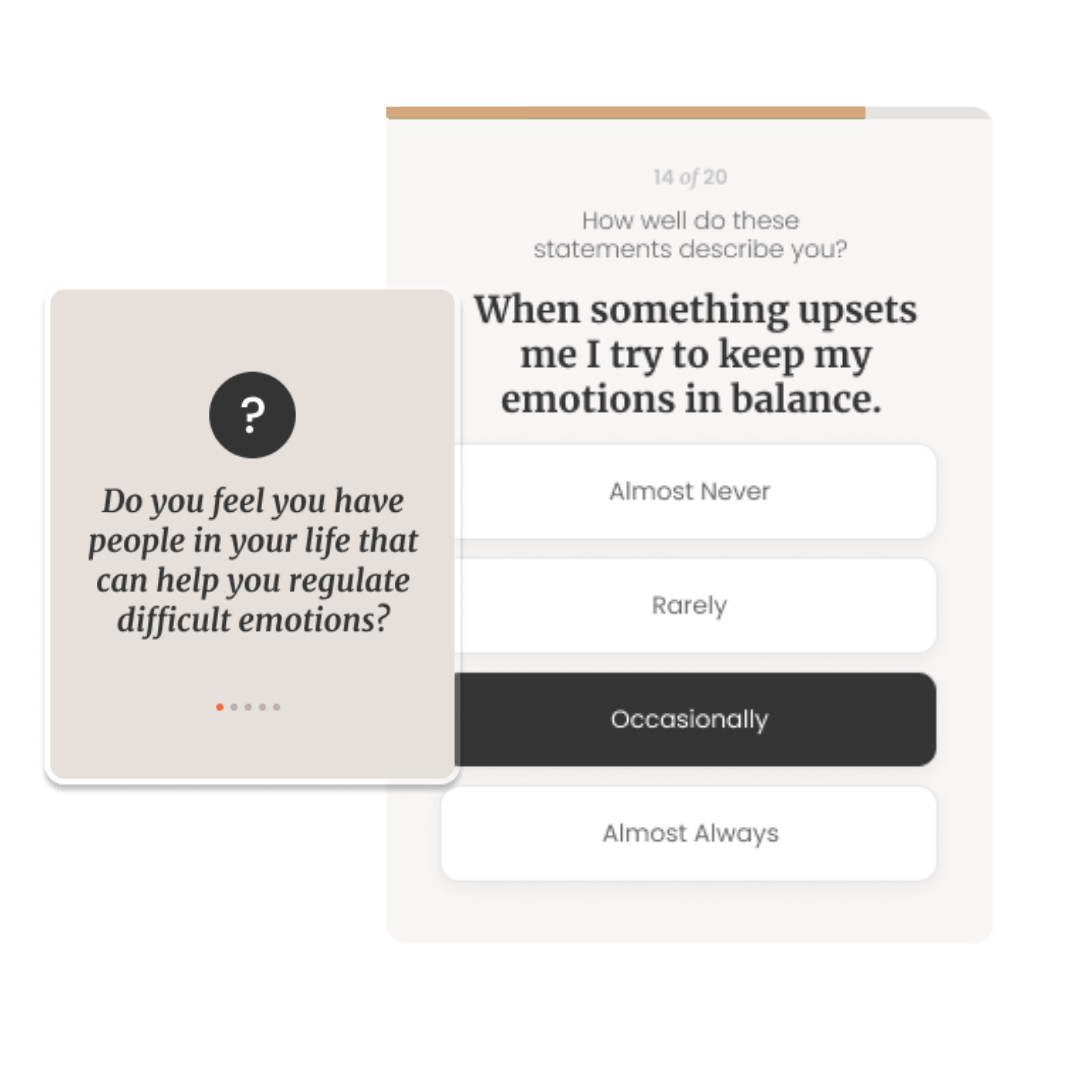CALL:
Addressing Depression: One Step at a Time
Do you feel sad, empty, or lonely? Are you easily irritated? Do you have a hard time sleeping, despite feeling tired and lethargic all of the time? These are some of the most common symptoms of depression, and you may feel like it's starting to disrupt your daily life and functioning.
DID YOU KNOW...
According to the World Health Organization, global prevalence of anxiety and depression increased by 25% from 2020-2021.
It's important to identify and address symptoms of depression early on, as the effects can begin to intensify over time. Depression may begin to influence our physical health and energy levels, the way we think, how we interact with others, and more.
COMMON DRIVERS OF DEPRESSION

Genetics

High Stress

Trauma

Relationships
What's your story?
There are many different factors that can contribute to depression. In order to treat your symptoms, we must get to the root cause of what is driving it. Think of depression as the very tip of a much larger iceberg - if we don't look deeper at what's underneath the surface, we're likely missing a huge part of the picture. Our team will help you begin to peel back the layers of your experiences so you can understand where your feelings are coming from.
OUR METHODS
Through a symptom-focused approach,
we will help you reduce your depressive symptoms.
In addition to in-person sessions, we utilize the Noble app to offer treatment plans (or "Roadmaps") that include self-guided content, automated lessons, action items, assignments, and other forms of between-session support.
How it works:

Keep making progress – between sessions
Roadmaps offer daily assignments that help you learn the art of staying consistent in your journey for the long haul. We believe that recovery and healing is a marathon, not a sprint, and should be worked at slowly and consistently over time for the best results.
More effective one-on-one sessions
Check-ins in each section of your Roadmap help you stay present in your journey, monitor progress, and pinpoint areas that you may need to work on more in your next session, while the ability for your therapist to review your journaling responses and track your progress allows for more tailored and effective one-on-one sessions.

We'll help you learn:
- Where depression comes from
- The link between depression and shame
- How depression influences behavior
- How to increase resiliency
- Identity formation
- The process of changing thoughts, emotions, behaviors, and beliefs








